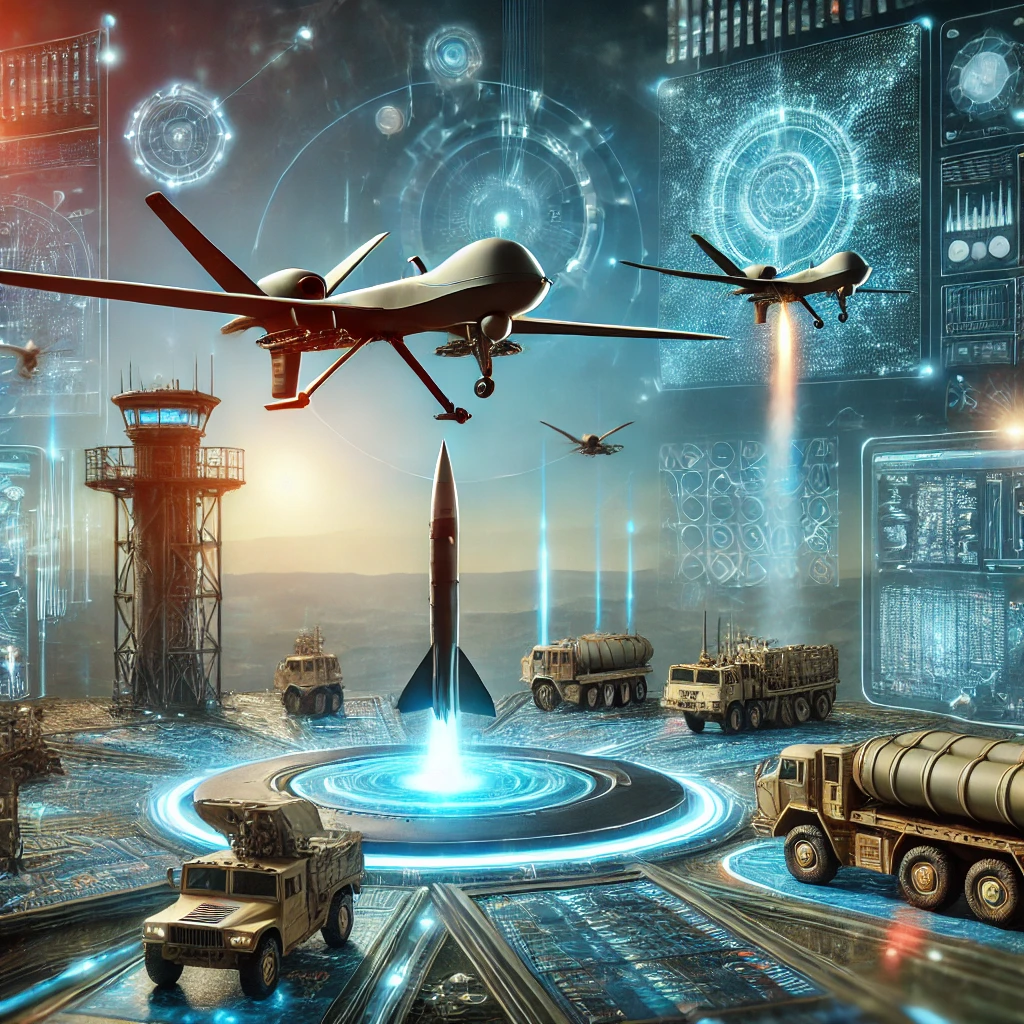When financial bubbles reach their peak, history shows that what goes up inevitably comes down. Right now, the AI and cryptocurrency sectors are riding a massive wave of speculative investment, with both seeing explosive growth fueled by hype and sky-high expectations. But as these bubbles spike higher, savvy investors are beginning to look ahead, wondering where capital will flow when the inevitable downturn arrives. One potential landing spot could be defense and military companies, especially as global tensions worsen in regions like China-Taiwan and Russia-Ukraine.

Cryptocurrencies and AI have seen a meteoric rise, driven by visions of transforming global finance and revolutionizing industry. However, without widespread adoption—especially from major economies like China—this growth may not be sustainable. For cryptocurrencies, mass global acceptance is critical. Digital currencies like Bitcoin are designed to be borderless, but if economic heavyweights like China continue to restrict or ban their use, their real-world utility remains limited. Additionally, regulatory uncertainty in other countries makes these assets vulnerable to sudden and dramatic value drops.

AI investments face similar vulnerabilities. The assumption that artificial intelligence will seamlessly transform industries worldwide underpins current sky-high valuations. Yet, rising trade barriers and geopolitical frictions could disrupt the technology’s progress. If nations like China double down on developing their own AI capabilities while blocking foreign access, it could stymie global innovation. This fragmentation threatens to derail the optimistic forecasts driving today’s AI bubble.

With both crypto and AI riding high, the reality remains: bubbles don’t last forever. The lofty expectations propping up these markets could falter, especially if geopolitical and regulatory challenges persist. When that happens, investors will need to find a new area for their money—a sector with stability, growth potential, and a critical role in an increasingly uncertain world.

Enter the defense and military industry. The world is becoming more unpredictable, and the likelihood of major conflicts de-escalating anytime soon appears slim. Governments are preparing for the long haul, ramping up defense spending to ensure their national security. This makes defense companies a likely magnet for investment capital as tensions escalate and the AI/crypto boom eventually deflates.

Companies developing advanced defense technologies—such as cutting-edge weapons systems, drones, and sophisticated cybersecurity solutions—could see a dramatic increase in funding. As nations prioritize military innovation to stay ahead in global conflicts, the potential for lucrative government contracts makes the defense sector highly attractive. Investment in defense technologies like hypersonic missiles, space-based systems, and AI-driven military applications could skyrocket, driven by both national security concerns and the opportunity for significant returns.

The ongoing crisis in Ukraine and heightened tensions around Taiwan highlight the critical need for military readiness and technological superiority. As a result, defense stocks could experience a boom not only from government spending but also from investors betting on the sector’s long-term growth potential.

In short, with crypto and AI currently spiking but inevitably facing the laws of financial gravity, the defense and military industry may become the next big investment frontier. As global instability grows and governments allocate more resources to national defense, speculative money is likely to find its way into this sector, setting the stage for the next major financial wave.





